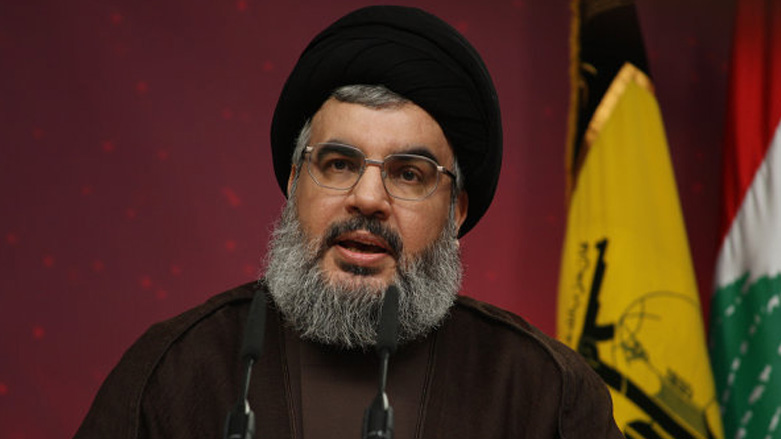Hezbollah's Hassan Nasrallah opposes independence for Kurdistan Region

WASHINGTON DC, United States (Kurdistan 24) – Hassan Nasrallah, the head of Lebanese Hezbollah, condemned the Kurdistan Region's independence referendum held on Monday, which produced a 92.7% vote in favor of secession.
The leader of the Iranian-backed paramilitary organization addressed crowds on Saturday in southern Beirut via video link, as they marked the major Shiite religious holiday of Ashura.
Nasrallah said that Kurdish independence would “open the door to partition, partition, partition,” Reuters news agency reported. “Partition means taking the region to internal wars whose end and time frame is known only to God.”
Nasrallah claimed that the referendum was part of a conspiracy, promoted by the US and Israel, to divide the region according to ethnic groups.
But while Israel has supported Kurdish independence, the US has opposed it. Indeed, US Secretary of State Rex Tillerson released a statement on Friday affirming “The United States does not recognize the Kurdistan Regional Government’s unilateral referendum held on Monday.”
“The vote and the results lack legitimacy,” the statement continued—despite the overwhelming majority in favor of independence. “We continue to support a united, federal, democratic and prosperous Iraq,” it affirmed.
Thus, the positions of the US and Hezbollah on Kurdish independence are virtually identical, and Iran’s position is the same.
On Saturday, Tehran announced the suspension of the export of refined petroleum products to the Kurdistan Region, as it seeks to pressure the Kurds to abandon their bid for independence.
Michael Pregent, an Iraq expert at the Hudson Institute who recently returned from Iraq, advised Kurdistan 24, “We shouldn’t be on the same side as Iran on this issue.”
There are concerns in the US Congress and elsewhere in Washington that the war against the Islamic State (IS) has increased Iranian influence in the region. The prospect of a “land bridge” from Tehran to Beirut is the most concrete of those concerns.
As Rep. Glenn Grothman, a Republican from Wisconsin, recently explained, “When the Syrian war wraps up,” there is a fear that “there will be a contiguous group” of like-minded states that runs “from Iran all the way to Lebanon.”
“You don’t want to have missiles and such driving down the highway between Iran and Lebanon,” he said.
Grothman supports an independent Kurdistan for several reasons, including as a means to counter Iran.
The establishment of a land corridor from Tehran to Beirut would very much benefit Nasrallah and Hezbollah, which the US has long designated a terrorist organization.
Nasrallah’s firm opposition to Kurdish independence reflects the position of his patrons in Tehran, but it is likely reinforced by the fact that an independent Kurdistan would constrain the movement of Iranian weapons and other material to Lebanon.
Key figures in the Trump administration, however, believe that a unified Iraq would counter Iran. As the White House Spokesperson said on Monday, the day of the independence referendum, we want a “unified Iraq to push back on Iran.”
Yet as Brig. Gen. Ernie Audino, retired from the US Army, and who served in Iraq, including with Kurdish forces, warned Kurdistan 24, “No, a unified Iraq IS Iran.”
That Nasrallah, along with the Iranian government itself, is so vehemently opposed to Kurdish independence would seem to raise serious doubt about the administration’s claim that a unified Iraq counters Tehran. Rather it would seem to suggest that Audino, Grothman, and Pregent have this one right.
Editing by G.H. Renaud
